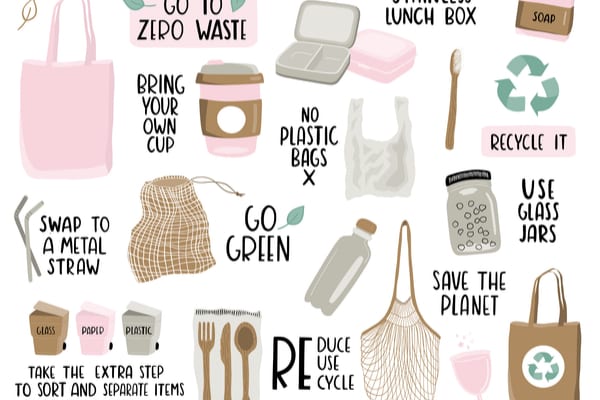Vegetable trimmings being turned into pickles and ferments, coffee grinds used as soil fertilizer, waste milk made into ricotta cheese, the leftover whey added to vinegar to make a pickling liquor … Sounds like something your super eco-minded friend next door would be up to. But as the Irish Times recently reported, these are just a few of the sustainable practices followed by FoodSpace, a contract catering company feeding hundreds of people every day at 14 workplaces and colleges across Ireland.
The ingredients the company uses in its kitchens across the Emerald Isle have this in common: they are local and seasonal, free-range and high-welfare. Since its establishment two years ago as a division of facilities management company Anleona Ireland, FoodSpace has raised the bar on sustainability in its field, while offering customers a choice of unsubsidised hot main-course lunches for between €4 and €6, and they are still making a profit.
“We decided that we wanted to be sustainable,” says Pauline Cox, director of food service. “We wanted to bring the business back to basics, to buy from the local butcher, baker, fruit and veg guy, fish supplier, and support local communities. I came across the Sustainable Restaurant Association (SRA) and I thought maybe we could start with the sustainable principles and they could help us to put all the processes in place from the beginning,”
Conor Spacey came on board as executive head chef, and Grainne Carberry as operations manager, and within a year FoodSpace had achieved the rigorous SRA’s highest score, for “adherence to its core principles of sustainable practice.” And last month, the company won an award for sourcing at SRA’s Food Made Good awards.
To follow sustainable practices, it breaks down to “three pillars – sourcing, which is everything that we buy; people – that is our customers as well as our employees and how people are treated, and environment – everything from energy sourcing to water usage,” Spacey says.
Now Spacey is the Irish representative to Chefs’ Manifesto, a collective of more than 130 chefs from 38 countries working together to achieve a more sustainable food system. “We had a presentation to potential clients recently and we brought out our kombucha and vinegars, onion chutney and nettle pesto, and part of the presentation was to show how we would bring them on a journey to a zero-waste kitchen. We’re looking for a client to say, actually, I embrace that.”
It is something Cox sees as being a growing trend. “In a lot of the tech companies, in particular, you’ve got generation Z and millennials and they want to work for employers that value the planet and are sustainable in their whole ethos.”
Catering to lifestyle choices is one thing, but FoodSpace is a business, and needs to show a profit. So how does it manage to sell main courses made with these carefully sourced ingredients and still make money? “Our chefs have to be chefs. We buy in whole chickens, for example, and break them down, and we get a carcass to make a sauce,” says Spacey. “That’s how we can afford to do it. We can’t afford prime cuts, we have to work with secondary cuts, which makes our chefs have to think a bit more about what they’re doing.”
Perhaps there’s a zero-waste kitchen coming to your neck of the woods soon.
—
Photo Credit: Ksenia Lokko / Shutterstock.com
